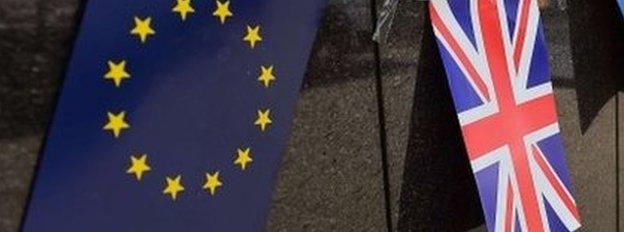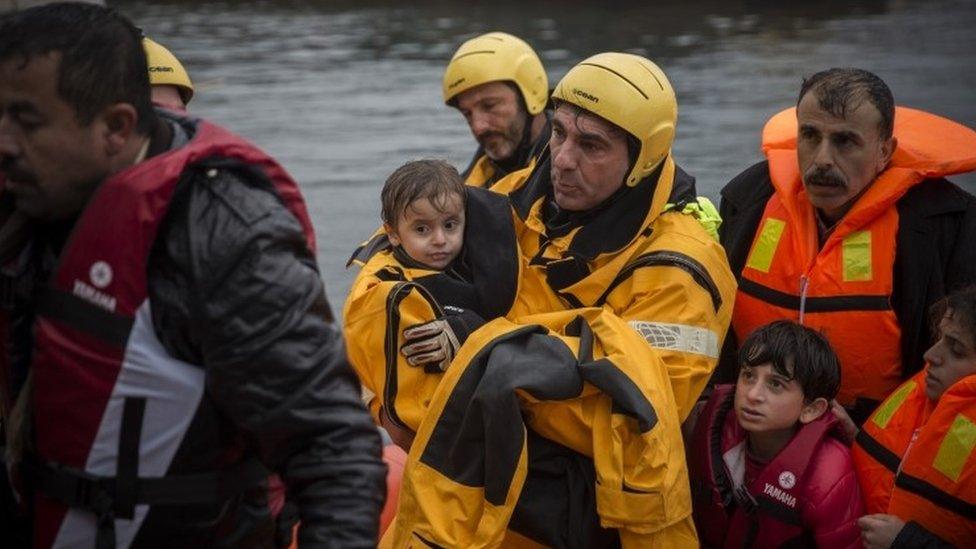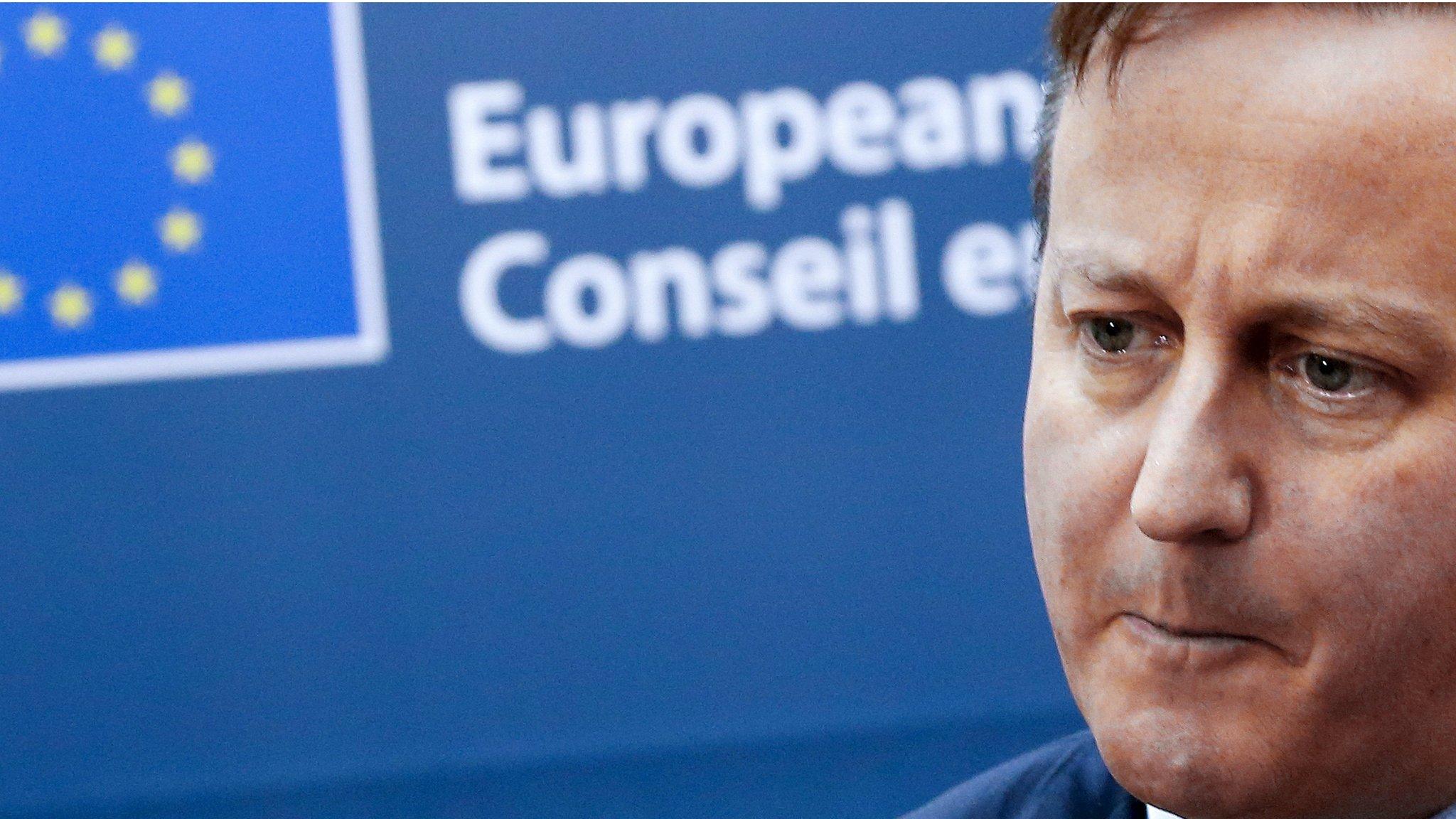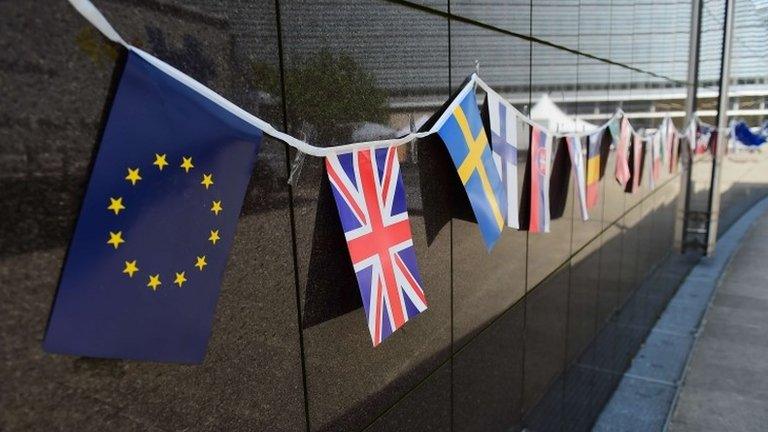EU vote 'spending free-for-all' warning
- Published

A spending "free-for-all" could make the EU referendum campaign unfair, the Electoral Reform Society has warned.
Two of the campaigns refused to answer BBC questions about how much they are spending and who has given them money.
A third - Leave.EU, external - told BBC Radio 4's Today programme it had already spent more than £2m and been promised ten million pounds by donors.
For now there are no rules limiting the amount campaigns can spend or forcing them to reveal their funders.
One campaigner said there was "a bit of an arms race" underway as groups rushed to raise and spend money.
Expenditure will be regulated and will have to be declared only in the final weeks before the referendum.
As the date of the vote is not yet announced, it is unclear when limits will be put in place.
A spokesman for the Electoral Reform Society, which campaigns for changes to the voting system, said: "This spending free-for-all could damage the chances of the referendum being conducted in a fair and democratic manner. If one side has significantly more resources, it could lead to an uneven playing field."
It has been suggested the campaigns could spend as much as £20m each.
The BBC asked the campaigns for the UK to leave and remain in the EU six questions, including how much they had spent, how much they had been promised and how much they expected to spend.
Only Leave.EU, funded in part by its co-founder the former UKIP donor Arron Banks, gave a detailed answer.
It said it had spent £2.3m so far, at a rate of £190,000 a month, and been promised £10m. They employed 84 staff.
Their biggest donor was Mr Banks. Other contributors included Jonathan Seymour Williams, Jonathan Banks, Richard Tice, Toby Blackwell, Jim Mellon and Andy Wigmore.
Mr Banks declined to say precisely how much he or other individual donors had given so far.

Questions put to EU campaigns
Who is your biggest donor?
How much has your biggest donor given so far and pledged to give in future?
How much have you spent so far?
How much have you been pledged by donors so far?
How much do you expect to spend by the date of the referendum?
How many people do you employ?

Vote Leave, external said it employed 30 permanent staff, but gave no direct answer to the other questions.
It noted it was already known the former Conservative treasurer Peter Cruddas had pledged £1m to their campaign.
A Vote Leave spokesman said: "We fully comply with the law and will comply with Electoral Commission rules on donations when these are set out nearer the referendum."
Britain Stronger in Europe, external did not answer any of the questions, saying it would not give a "running commentary".
It said it would comply with Electoral Commission rules.
A spokeswoman said: "While general elections are won or lost in 100 marginal seats, we have to reach 46 million voters across 650 seats, that means building a ground operation from scratch across the country."
It is known the Labour donor Lord Sainsbury and philanthropist David Harding are Britain Stronger in Europe's main funders.
In a regulated period before the referendum, probably lasting 16 weeks, campaigns will be required to make public donations and loans they have received worth more than £7,500.
Two designated lead campaigns will be allowed to spend £7m each in the regulated period. Political parties will also be able to spend money on their own campaigns.
In the Scottish independence referendum campaigners were required to report donations made between December 2013 and the date of the vote in September 2014.
A government spokesman said: "The EU referendum will use the same framework of rules which delivered free and fair results in previous polls like the Scottish Independence referendum last year.
"Limits are set on campaign spending and campaigners must be transparent about where their funding came from, before a referendum takes place."

UK's EU referendum in-depth
- Published18 December 2015

- Published14 December 2015

- Published18 December 2015
- Published17 February 2016

- Published30 December 2020
